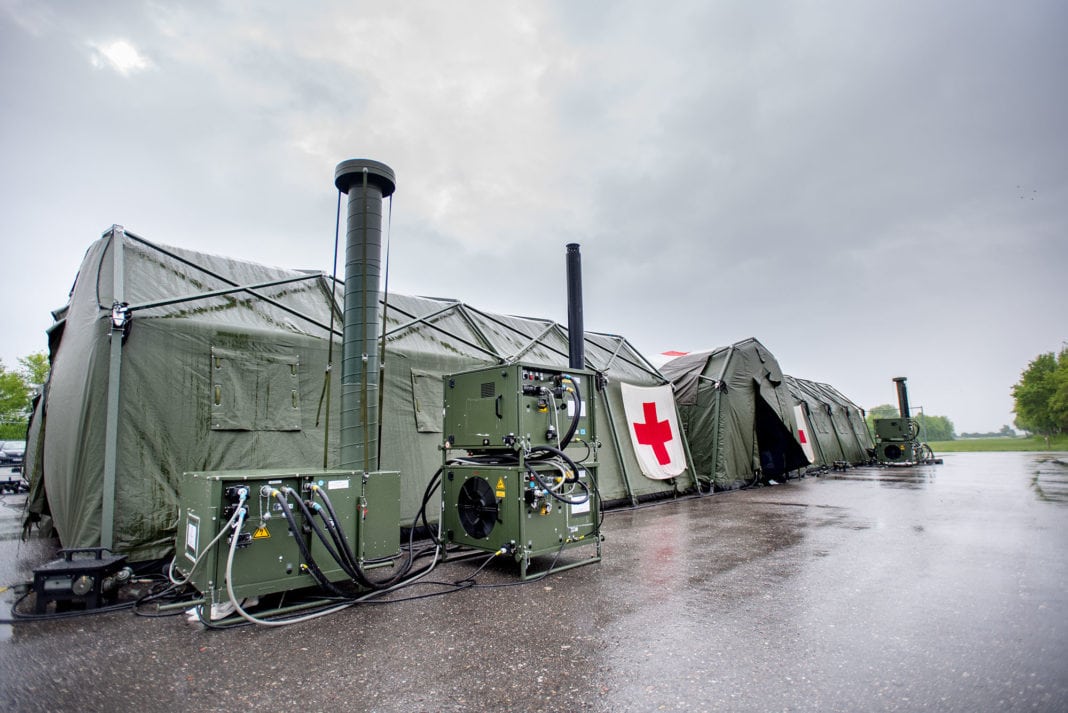The medical service of the Bundeswehr receives new light airborne rescue centers. The Federal Office of Bundeswehr Equipment, Information Technology and In-Service Support (BAAINBw) has commissioned the company M. Schall GmbH & Co KG to provide eight such systems.
The contract is worth around 40 million euros and will be financed from the Bundeswehr’s special fund. Approval by the Budget and Defense Committee of the German Bundestag in January 2023 marked the decisive milestone in the procurement of this project. The mobile medical facilities, in which emergency medical and surgical first aid is provided to patients, include an ambulance, an operating theater and intensive care capacities.
 “With the new light airborne rescue centers, the systems that have been in use since 2003 will be regenerated and missing material will be newly procured,” said the responsible project manager at the BAAINBw, senior field pharmacist René Schliebener, on the occasion of the contract signing. The new medical equipment will ensure improved treatment options for soldiers in the areas of deployment. For example, the equipment includes a new, portable X-ray machine and a bone surgery unit – the latter can be used either for the surgical opening of the skull (skull trepanation) or the treatment of complicated bone fractures. There have also been changes to the basic equipment: The lighting has been converted to LED technology, the new tents are more than 30 tons lighter than their predecessors and have also been greatly reduced in terms of volume, making them optimized for air transport. https://militaeraktuell.at/bundeswehr-erhaelt-letzten-marinehubschrauber-sea-lion/ All new devices are also designed to be highly self-sufficient and are equipped with rechargeable batteries. This enables continuous treatment of injured persons even if the generator sets fail. These will also be replaced by state-of-the-art systems. The first equipment is to be handed over to the Bundeswehr in the fourth quarter of this year. Delivery of the last of the eight systems is scheduled for the end of 2024. The contract also includes an option for the delivery of a further eight systems.
“With the new light airborne rescue centers, the systems that have been in use since 2003 will be regenerated and missing material will be newly procured,” said the responsible project manager at the BAAINBw, senior field pharmacist René Schliebener, on the occasion of the contract signing. The new medical equipment will ensure improved treatment options for soldiers in the areas of deployment. For example, the equipment includes a new, portable X-ray machine and a bone surgery unit – the latter can be used either for the surgical opening of the skull (skull trepanation) or the treatment of complicated bone fractures. There have also been changes to the basic equipment: The lighting has been converted to LED technology, the new tents are more than 30 tons lighter than their predecessors and have also been greatly reduced in terms of volume, making them optimized for air transport. https://militaeraktuell.at/bundeswehr-erhaelt-letzten-marinehubschrauber-sea-lion/ All new devices are also designed to be highly self-sufficient and are equipped with rechargeable batteries. This enables continuous treatment of injured persons even if the generator sets fail. These will also be replaced by state-of-the-art systems. The first equipment is to be handed over to the Bundeswehr in the fourth quarter of this year. Delivery of the last of the eight systems is scheduled for the end of 2024. The contract also includes an option for the delivery of a further eight systems.










